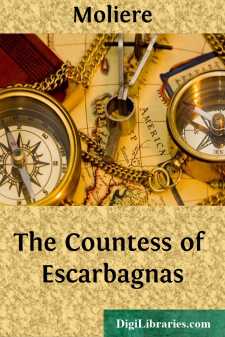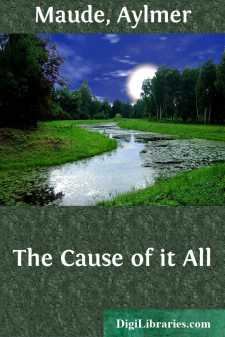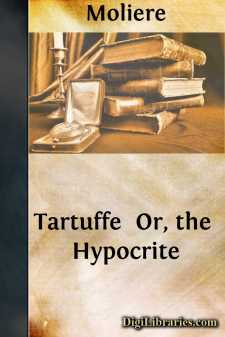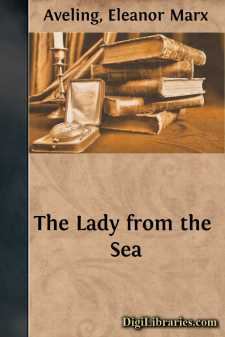Drama
- American 43
- Ancient, Classical & Medieval 45
- Asian 7
- Caribbean & Latin American 2
- Continental European
- English, Irish, Scottish, Welsh 91
- General 105
- Middle Eastern 1
- Religious & Liturgical 1
- Shakespeare 1
Continental European Books
Sort by:
by:
Moliere
SCENE I.—JULIA, THE VISCOUNT. Visc. What! you are here already? Ju. Yes, and you ought to be ashamed of yourself, Cléante; it is not right for a lover to be the last to come to the rendezvous. Visc. I should have been here long ago if there were no importunate people in the world. I was stopped on my way by an old bore of rank, who asked me news of the court, merely to be able himself to detail to...
more...
ACT ONE SCENE I (Music Master, Dancing Master, Musicians, and Dancers) (The play opens with a great assembly of instruments, and in the middle of the stage is a pupil of the Music Master seated at a table composing a melody which Monsieur Jourdain has ordered for a serenade.) MUSIC MASTER: (To Musicians) Come, come into this room, sit there and wait until he comes. DANCING MASTER: (To dancers) And...
more...
by:
Henrik Ibsen
A DOLL'S HOUSE ACT I (SCENE.—A room furnished comfortably and tastefully, but not extravagantly. At the back, a door to the right leads to the entrance-hall, another to the left leads to Helmer's study. Between the doors stands a piano. In the middle of the left-hand wall is a door, and beyond it a window. Near the window are a round table, armchairs and a small sofa. In the right-hand...
more...
MEMORANDUM The Sacred Legends touched by this Trilogy would be familiar, in outline, to the Auditors: e. g.: The woes of the House of Atreus: the foundation of them laid by Atreus when, to take vengeance on his brother Thyestes, he served up to him at a banquet the flesh of his own sons; His grandsons were Agamemnon and Menelaus: Menelaus' wife, Helen, was stolen by a guest, Paris of Troy, which...
more...
by:
Aylmer Maude
ACT I Autumn. A peasant's hut, with a small room partitioned off. AkulÃna sits spinning; Martha the housewife is kneading bread; little Paráshka is rocking a cradle. MARTHA. Oh dear, my heart feels heavy! I know it means trouble; there's nothing to keep him there. It will again be like the other day, when he went to town to sell the firewood and drank nearly half of it. And he blames me...
more...
by:
Moliere
ACT I SCENE I MADAME PERNELLE and FLIPOTTE, her servant; ELMIRE, MARIANE, CLEANTE, DAMIS, DORINE MADAME PERNELLE Come, come, Flipotte, and let me get away. ELMIRE You hurry so, I hardly can attend you. MADAME PERNELLE Then don't, my daughter-in law. Stay where you are. I can dispense with your polite attentions. ELMIRE We're only paying what is due you,...
more...
ACT I SCENE I (So-called 'Little Hall' in BRAND'S manor-house at Reynistad. Enter the DEACON SIGURD, THOROLF BJARNASON, ALF OF GROF, and EINAR THE RICH, of Vik.) Deacon Sigurd.—Thorolf, Lady Jorun bade you wait here until her husband comes. Thorolf.—Where is Brand Kolbeinsson? I bear a message for him from my Lord Kolbein the Young. Sigurd.—Why comes he not himself? Alf.—Kolbein...
more...
THE LADY FROM THE SEA ACT I (SCENE.—DOCTOR WANGEL'S house, with a large verandah garden in front of and around the house. Under the verandah a flagstaff. In the garden an arbour, with table and chairs. Hedge, with small gate at the back. Beyond, a road along the seashore. An avenue of trees along the road. Between the trees are seen the fjord, high mountain ranges and peaks. A warm and...
more...
by:
Thomas Dekker
INTRODUCTION THOMAS DEKKER Thomas Dekker is believed to have been born in London around 1572, but nothing is known for certain about his youth. He embarked on a career as a theatre writer early in his adult life, the first extant text of his work being 'Old Fortunatus' written around 1596, although there are plays connected with his name which were performed as early as 1594. The period from...
more...
ACT I. Scene I.—ELSINORE. A Platform before the Castle. Night. Francisco on his post. Enter to him Bernardo, L.H. Ber. Who's there? Fran. (R.) Nay, answer me: stand, and unfold yourself. Ber. Long live the king! Fran. Bernardo? Ber. He. Fran. You come most carefully upon your hour. Ber. 'Tis now struck twelve; get thee to bed, Francisco. Fran. For this relief much thanks: [Crosses to L.]...
more...











